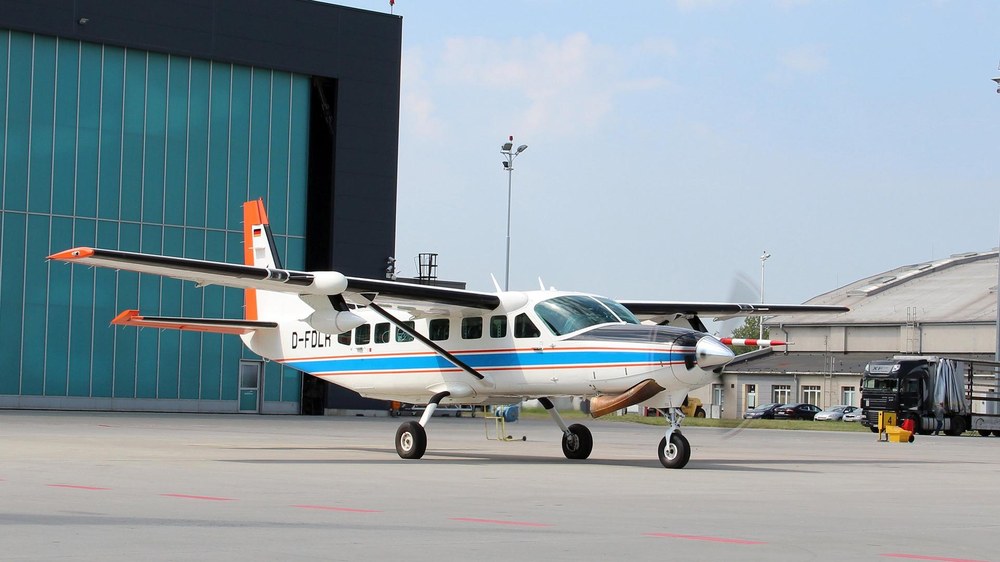Cessna 208 B Grand Caravan (D-FDLR)



The Cessna 208 B Grand Caravan (D-FDLR), operated by the German Aerospace Center (Deutsches Zentrum für Luft- und Raumfahrt; DLR) Flight Experiments in Oberpfaffenhofen, serves as a carrier system for flight tests and experiments. The aircraft is used by various DLR institutes and numerous external customers.
Flying lecture theatre
The single-engine turbo-prop plane is the smallest aircraft belonging to the DLR Research Flight Department. Due to its various modifications, including the installation of sensors and observation/measurement equipment, as well as its simple and robust design, the Cessna 208 B is a highly efficient and cost-effective research platform.
The large, non-pressurised cabin with its rectangular cross-section is particularly suited to in situ atmospheric research and remote sensing applications. For this purpose, it has various fuselage openings (including downward-pointing camera ports), as well as options for additional air intakes, an external hardpoint on the port wing and instrument installations.
Computers for performing experiments can be accommodated in specially manufactured racks in the aircraft fuselage, while the onboard electrical system supplies the necessary power. A variety of flight data is recorded in-flight by a measurement system and is immediately available for experimental purposes.
The aircraft is equipped for flight in accordance with visual flight rules (VFR) and instrument flight rules (IFR); it is suitable for low-speed flight and has a specially modified exhaust system in order to eliminate interference with measurements performed in or close to the cabin.
Additionally, at seminar events in what is referred to as a 'flying lecture theatre', an additional system can be installed to allow the Cessna 208 B to be used as a controlled test flight platform for students (including aeronautical engineers, meteorologists and aviation weather advisors).
